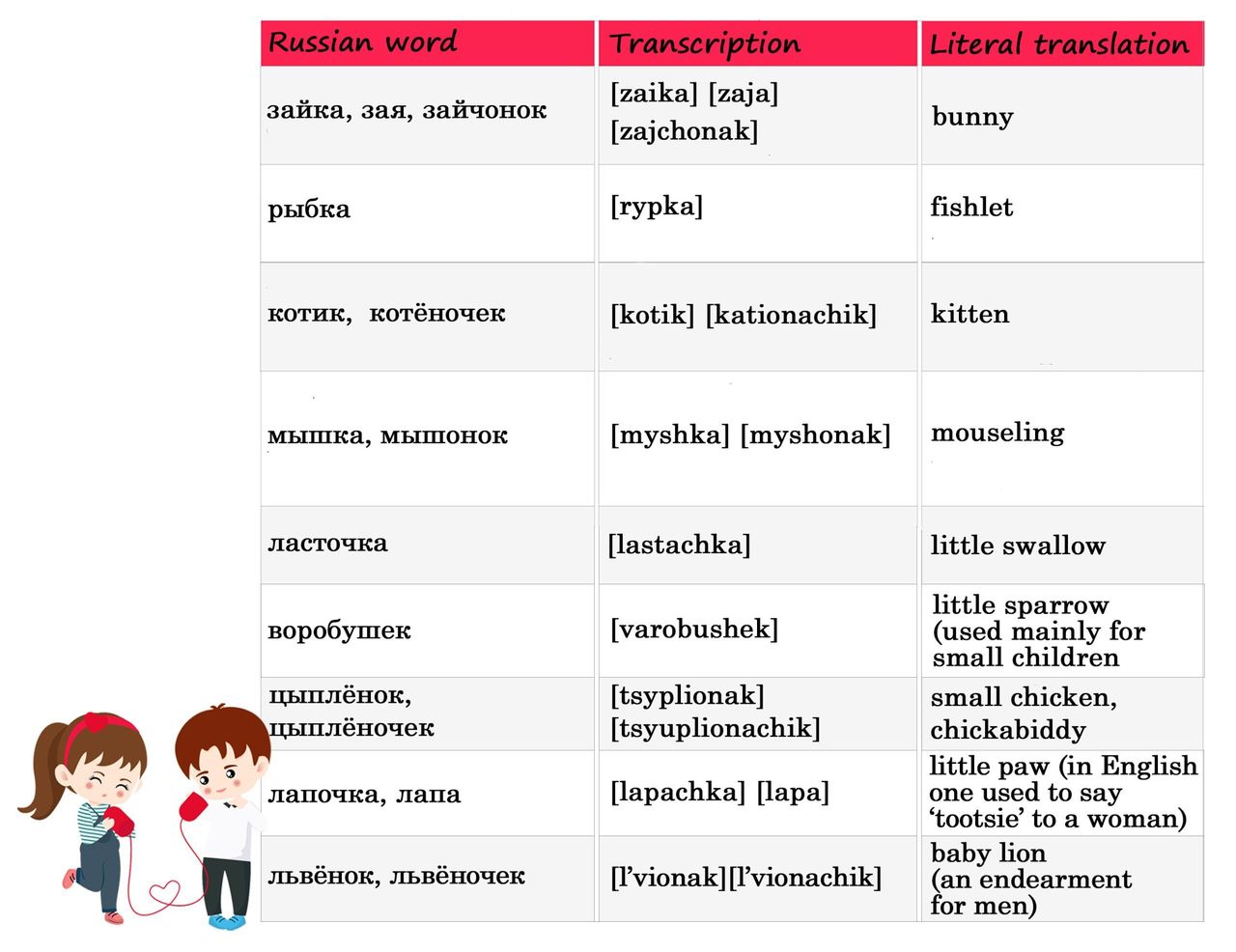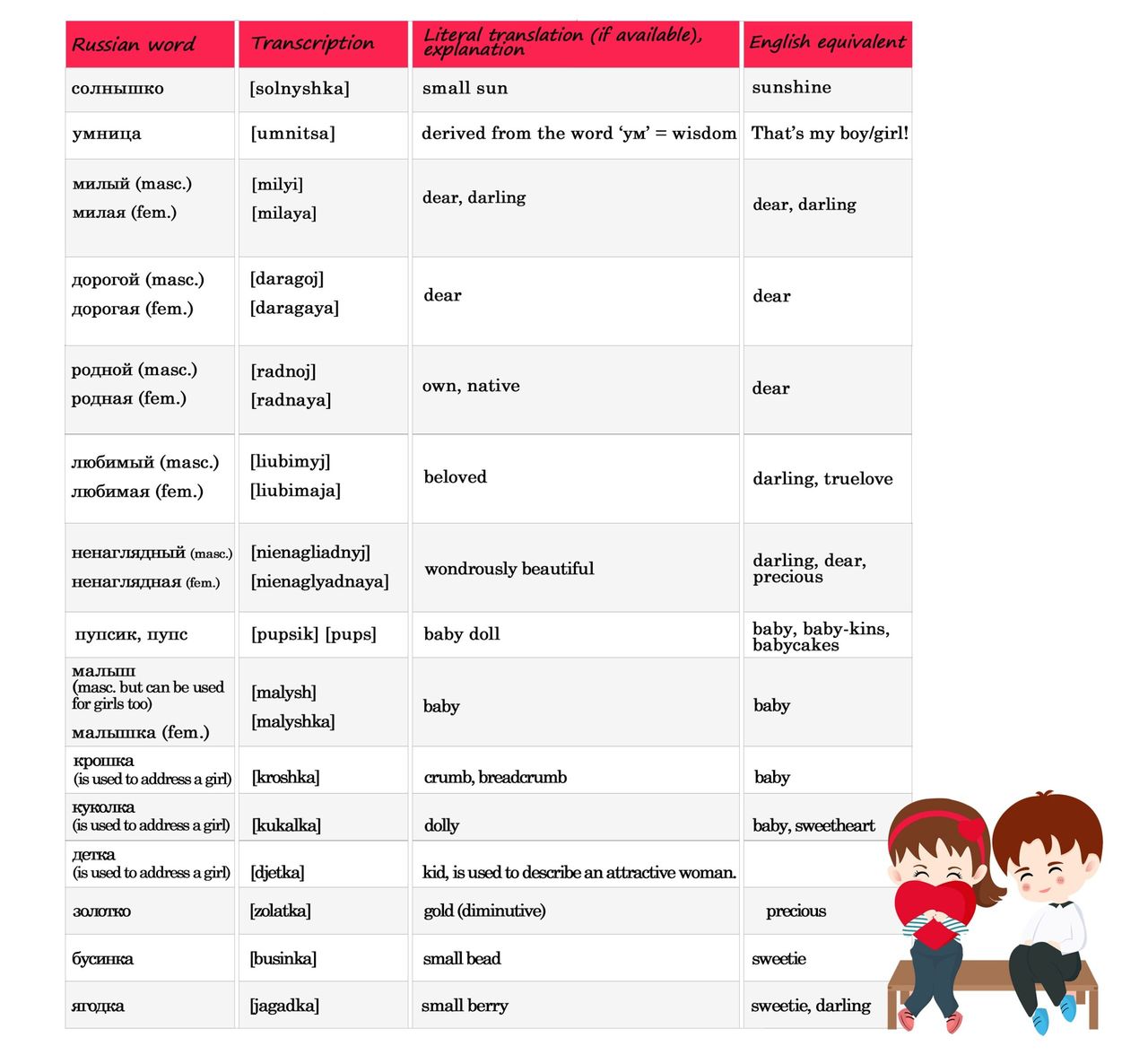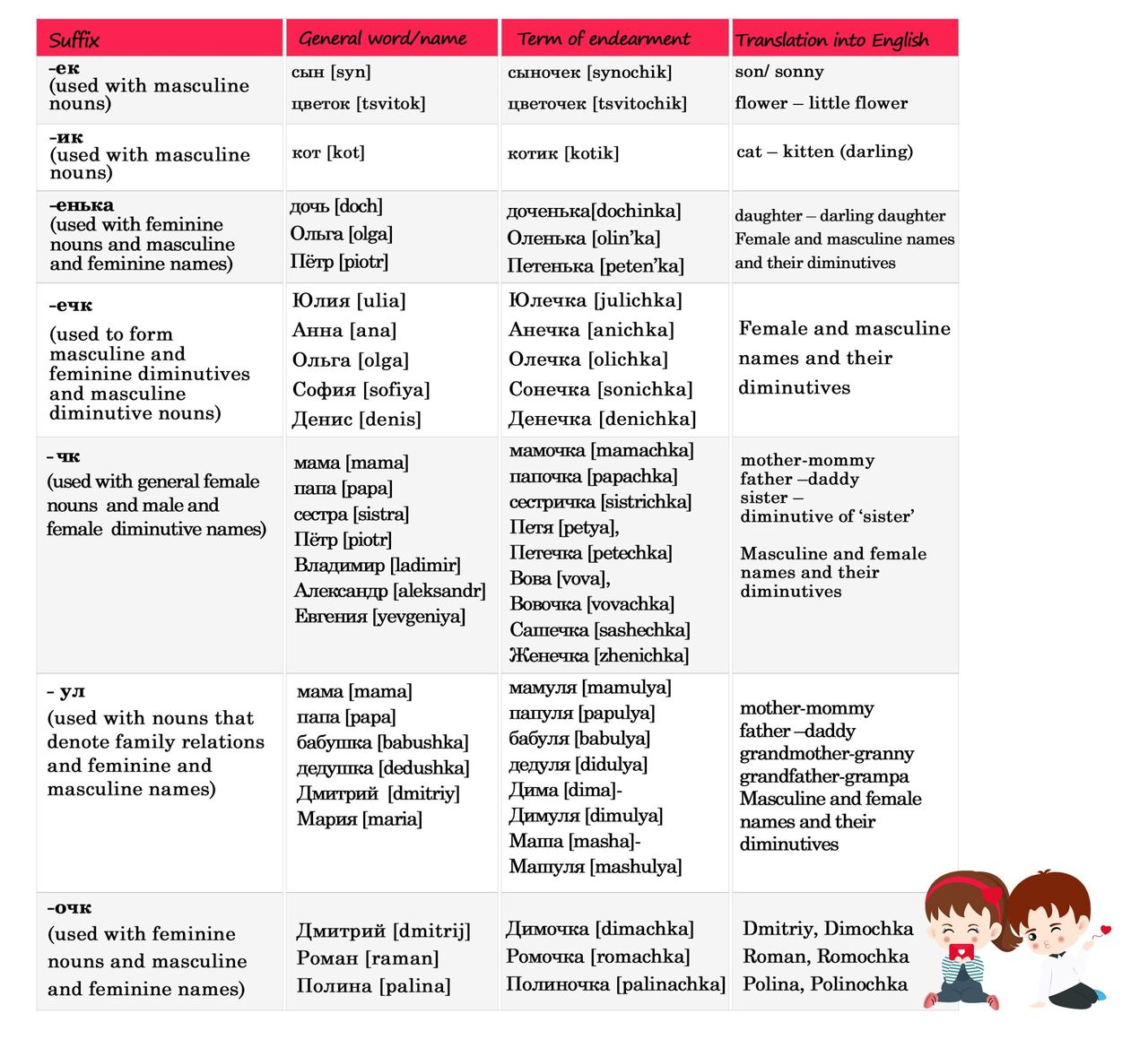Show Affection With Russian Terms of Endearment
In today’s post, we will concentrate on the most common Russian terms of endearment. Before we start, it’s worth mentioning that one can express love and affection using romantic words and by adding diminutive suffixes to names or common words. The Russian language boasts a large number of love words owing to the fact that endearment, admiration and tenderness can be conveyed with the help of special affixes.
The most common Russian terms of endearment
Unlike in English where a lot of terms of endearment suggest that you want to eat your loved one (i.e. sweetheart, cupcake, sugar, sweetie pie, honey) in Russian darlings are often compared to baby animals (diminutive forms of animal names are used):

Other common terms of endearment express that someone is very dear to you, emphasize that they are wise, beautiful or small. All of the words are used to convey love and affection:
Learn Russian online using LingQ
Access thousands of hours of content and learn Russian online using LingQ. LingQ allows you easily look up words, save, and review them.

Also, it’s available on mobile. Take your lessons wherever you go and listen to your target language, read your transcripts, and create review flashcards. LingQ’s language learning apps are available for both Android and iOS.

Russian diminutives: names and suffixes
As you might have noticed, the majority of the love words mentioned above are derived from the usual words by adding a diminutive affix, i.e.:
Рыба – рыбка [ryba rypka] – fish – fishlet
Солнце – солнышко [sontse – solnyshka] – sun – sunshine
Thus, by adding a suffix to nearly any noun you can either create an words that conveys affection or a word that expresses contempt.
Another peculiarity of the Russian language is that when addressing a friend or someone whom you refer to as ‘ты’, a diminutive form is used instead of the full version of their name, i.e.:
Серёжа, подай, пожалуйста, хлеб. [seriozha padaj pazhalusta hleb] – Serezha, could you pass the bread, please? – where Серёжа is a diminutive of Сергей [sirgej] (Sergey)
To make things more complicated, apart from Серёжа there are a number of diminutive versions of this name. They are formed by adding various suffixes:
Серёжка [siriozha]
Серёженька [siriozhin’ka]
Серж [serzh]
A list of the most common diminutive names in Russia:
You can familiarize yourself with the diminutive forms of Russian name sand learn the particularly tricky ones, as some of them bear no resemblance to the original form of the name.
The most common suffixes to express love and create additional diminutive names:
As mentioned above, each and every name can have a few diminutives, which are formed similarly to the diminutives of common words. Here are some of the most widely used affixes to form endearments and name diminutives:
 As you can see, Russian has endless possibilities for creating terms of endearment thanks to the numerous affixes. At first they might seem overwhelming, but once you get a better grasp of the language you will use them offhand without thinking twice.
As you can see, Russian has endless possibilities for creating terms of endearment thanks to the numerous affixes. At first they might seem overwhelming, but once you get a better grasp of the language you will use them offhand without thinking twice.
Last but not least, we wouldn’t recommend using terms of endearment excessively or with people you barely know. That’s where learning hello and goodbye in Russian will come in handy. However, be generous with your sweetheart as you can’t go wrong with expressing affection towards your loved ones. Russian terms of endearment make the atmosphere much warmer, relaxed and loving.
***
Ievgeniia Logvinenko is passionate about languages and holds a Master’s degree in English philology. In addition to English, she speaks Russian, Ukrainian, Polish, German and basic French.


